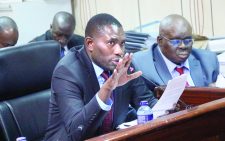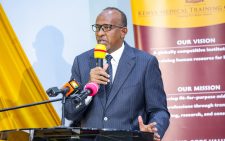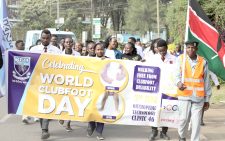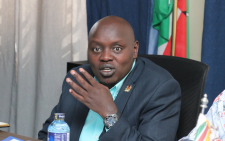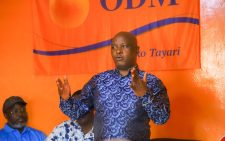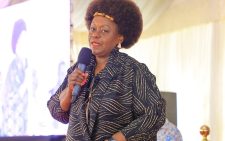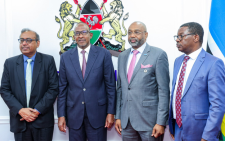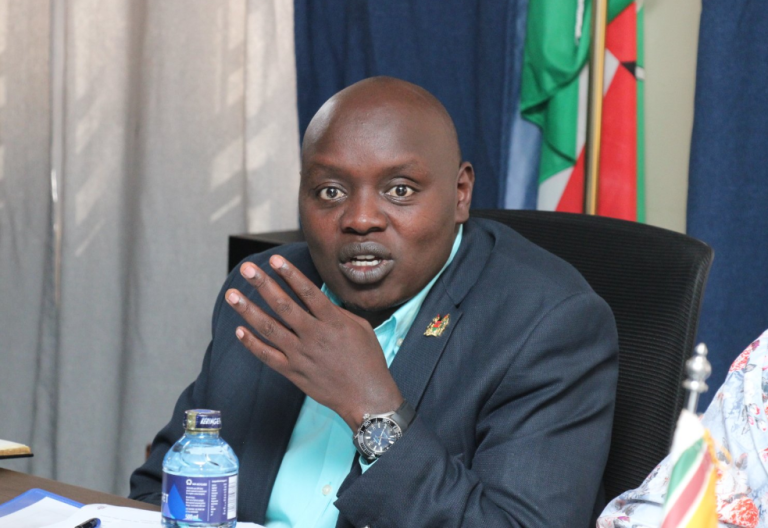Cerebral palsy kids deserve to have fun

When Jerusah Angulu, delivered her lastborn daughter – now aged two years- her life changed. The child was born with cerebral palsy. The mother of three and a resident of Mwakirunge in Mombasa County, narrates to PD Weekendi the experience of raising a child with cerebral palsy.
“When the doctor held my daughter after she was born, I could tell that something was wrong. After assessing the child, the medics informed me that she had been born with a disability. I was broken,” Ms Angulu recalls. Because of the baby’s low birth weight and the challenges she was facing, both mother and child stayed in hospital for a month longer. After they were discharged, few weeks later, the baby’s head started growing big, a condition called hydrocephalus. Experts say hydrocephalus, meaning “water on the brain,” is a condition where cerebrospinal fluid (CSF) builds up in the brain’s ventricles, causing increased pressure and potentially brain damage.
Health challenges
“When I noticed this, I rushed to Kilifi General Hospital. This was about two weeks after I was discharged from Coast General Hospital. The doctors told me that if I had not rushed to the hospital, I may have lost her,” says the mother of three. And that has been the life of Angulu- one hospital visit after another and endless therapy sessions. Apart from being costly, it has taken an emotional toll on her. She has also faced stigma and discrimination because of her child’s condition.
“It has not been an easy journey. As parents, we have to take shifts taking care of her. The cost of medication and treatment is also high,” she says.
Like Angulu, Christine Mutiso, is another parent, who has gone through an equal share of challenges raising a special needs child.
“Due to health challenges, I had an emergency C-section when my pregnancy was at six months. The child was delivered at only 900 grams so he was immediately put in the nursery and stayed there for a month. By the time we left he weighed 1.7kg,” Mutiso shares her experience.
Two months after they left the hospital, she noticed something strange with the child. He was not moving his fingers at all.
“So I started going for therapy at Coast General Hospital. By the time he was almost a year, his weight was at only 2.5 kilos. They recommended a diet which seemed to be doing more harm than good so I stopped and started weaning him on blended bananas and other traditional foods,” says Mutiso.
Unfortunately, when the child was a year and half, Mutiso stopped going for therapy sessions because it was expensive. Her physical and mental health also took a dive. “My wounds after the birth operation were not healing well.
I was always up and down for therapy and was carrying the baby all the way. As a result, I had to undergo a second surgery. I lost my job in the process and my husband also left.”
She gathered her strength and soldiered on. “It was tough but I had to be strong for my child as a single parent,” she says.
Both parents have also faced serious stigma and discrimination raising children with Cerebral Palsy.
As Kenya marked National Cerebral Palsy Awareness Day on March 25, it was evident that stigma and discrimination is still a big challenge for persons with cerebral palsy. In light of this there is need to create awareness on the condition in line with the theme “Advocate for Inclusion to Individuals with Cerebral Palsy”.
Data shows that cerebral palsy affects one in every 345 children.
Stigmatisation of families with children with disabilities, especially those with cerebral palsy forces many parents to neglect proper care giving of the children. Some parents even lock their children indoors for the rest of their lives to save the families the wrath of humiliation.
Foundation of hope
It is against this background, that a couple in Mombasa county who has undergone the challenge of raising a child with cerebral palsy, started a foundation to create awareness on the issue.
Mary Atuya and Felix Odhiambo started Jayden Foundation to help other families with cerebral palsy children, to walk the journey with dignity. Their son, Jayden Odhiambo, aged 11 years old, was born with the condition.
“We’ve walked through this journey and we have witnessed the challenges first hand. It is expensive and mentally and physically demanding. The therapies, medication and diet is a lot. I used to be out of the country but due to all these challenges, I had to return back to help raise Jayden,” Odhiambo says.
Odhiambo notes that many fathers of children with disability abandon their families due to pressures.
Through the foundation, Odhiambo hopes to encourage men to stand with their families instead of running away from the weight of raising a cerebral palsy child.
“My appeal is to all fathers to be responsible and support the mothers in taking care of children with special needs,” he urges.
Atuya stresses on the expensive cost of care.
“I remember a case where we had to go to Nairobi to see a child neurologist, the cost of transport was high. You can’t go by road because of the convulsions. Schools for cerebral palsy are expensive and you have to pay for tuition, speech and occupational therapies. The few schools which are in Mombasa for autism and cerebral palsy are expensive compared to normal schools,” says Atuya.
The goal of the foundation is to create more awareness and educate people about cerebral palsy to enhance inclusivity. She also urges parents with kids with special needs not to hide them.
“Don’t hide the child in the house; they also need to feel the sunshine, breathe fresh air and see other children play. Take the child out to swim, church and other fun places. They are just as human as other kids,” she says.
This is the main reason they started Jayden Foundation, so that other parents with kids with the same condition can be seen and heard.
